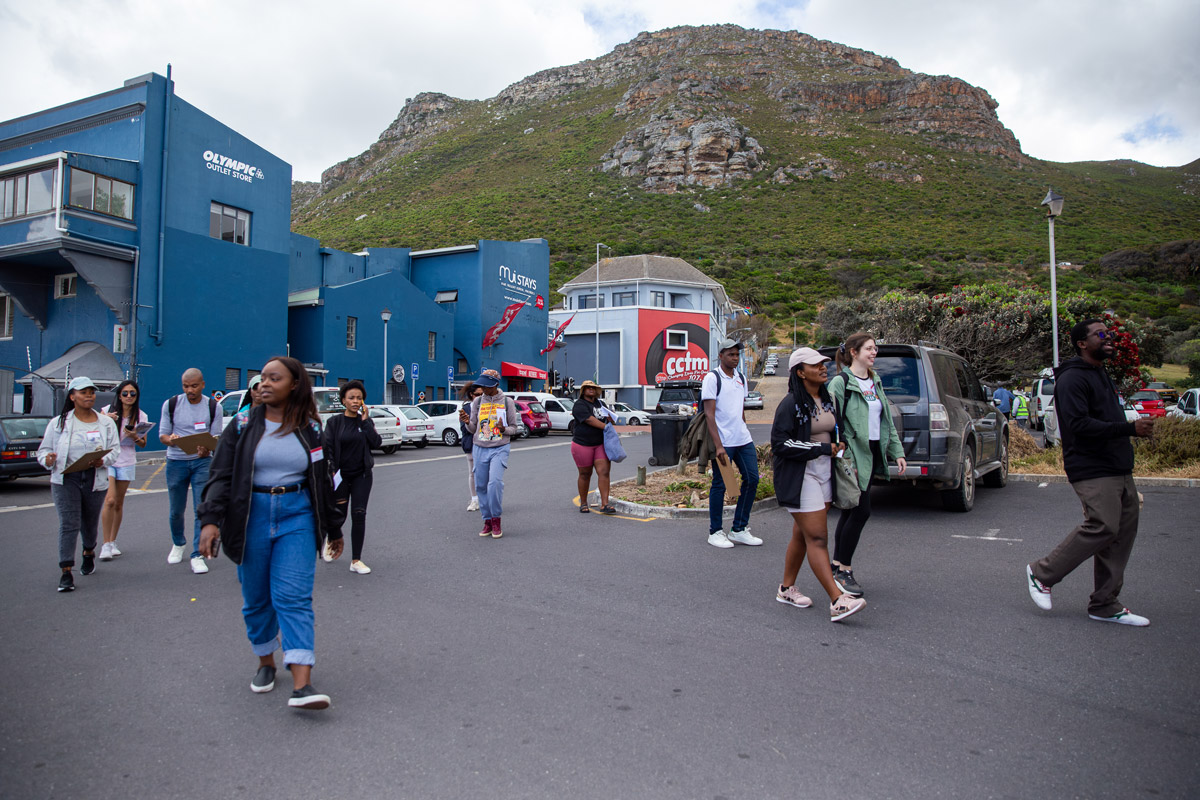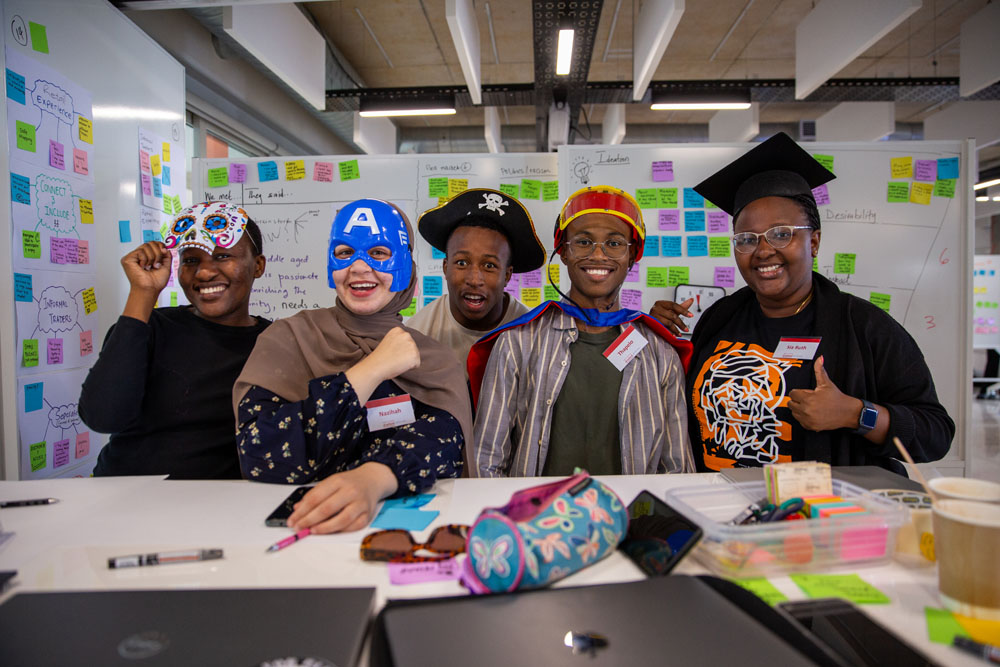Day three of the d.confestival started with the clicks, claps and stamps of a storm, even though the sun was shining in Cape Town. Participants engaged with each other through a cultural connection led by creativity facilitator Colin Skelton, where the crowd moved as one, mimicking the sounds and patterns of rainfall and thunder. This non-verbal communication and collaboration were exemplary of the day, as designers, entrepreneurs and practitioners sought to learn from and with each other.
George Kembel, co-founder and executive director of Stanford’s d.school, started the day’s learning journey through a discussion on the ‘move to mastery’. Inspired by the passing of the torch in Buddhism from one Dalai Lama to the next, Kembel shone a light on what it means to surrender to a deeper understanding of the world, and our connections with each other, beyond our thinking minds:
“Our unconscious, emotional mind has so much more horsepower than our rational conscious mind. We just haven’t grasped how to harness that power yet.”
He went on to describe our inner workings as being like a weather system, with its own patterns and energy, which we don’t fully understand nor know how to predict. It drew attention back to the collaborative pitter-patter of rain that started the day as participants connected on a level beyond the rational.
This emotional connection was most evident through the afternoon’s World Café exploration, replicating and reimagining the power of spontaneous conversation of informal coffee shop chat. Participants shared stories and insights in the name of the biggest challenges and opportunities of teaching and learning in design thinking across corporate business, youth entrepreneurship, social development and the public sector.
These insights were synthesised into a meaningful and practical platform of words and actions to be taken up by all after the d.confestival ended. Hoda Mostafa, Director at the Center for Learning and Teaching at the American University in Cairo, and a key contributor on the day crystalised the importance of this sentiment, marking the true junction of Afrika’s design thinking story:
“This won’t be the end of the conversation; it is just the beginning, and hopefully, we can take this forward to change Afrika for the better.”
UCT Vice-Chancellor, Mamokgethi Phakeng, grabbed this torch and continued the ambition of everyone in the room, as well as those attending online, highlighting the power and value of what was discussed, shared and felt over the three days:
“The underlying objective of design thinking is to change the world. We have to embrace this through understanding our relationship with our environment.”
It was a challenge, and an invitation, for all to take on, symbolizing why design thinking matters now.
Watch the highlights of the three days below:




